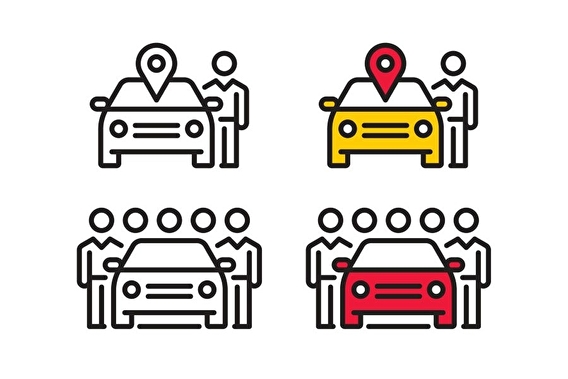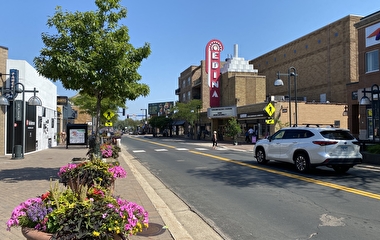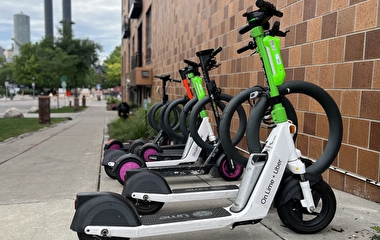
Surge pricing in rideshare apps leads to more complaints from customers, which ultimately eats away at drivers’ incomes, according to new U of M research.
Rideshare platforms commonly use surge pricing to balance supply and demand by increasing ride prices when there’s a large number of requests at the same time in a certain area. By setting higher rates, the platforms encourage more drivers to serve that area.
Carlson School associate professors Linli Xu and Yi Zhu and University of Southern California assistant professor Yanhao “Max” Wei investigated the relationship between surge pricing and customer complaints in their research paper forthcoming in Management Science. The researchers reviewed data from millions of rides from China’s largest ride-hailing platform, which accounts for 60 percent of worldwide ride-hailing users. They determined:
- Surge pricing significantly increases the probability of the driver receiving a complaint.
- Customer complaints decrease a driver’s future income. About 23 percent of a driver’s immediate income boost from surge pricing is offset by the future income loss from rider complaints.
- Capping surge prices can reduce surge-induced complaints, which increases overall app usage and limits the negative impact on drivers.
“Platforms often look at the pricing and the review systems separately,” Xu says. “Our research shows companies need to think about the interplay between the two. In this case, the surge pricing somewhat defeats the purpose of the higher immediate income for drivers because of the later losses from complaints.”
Xu explains that the study’s takeaways are especially important for new rideshare drivers, who are still building their reputation. Chasing surge pricing, she says, could be a double-edged sword and hurt their overall rating more drastically if they don’t have enough rides under their belts.
The researchers say the findings highlight the importance of adapting platforms to better serve both customers and service providers. During the study, the rideshare app instituted a surge pricing cap to limit the maximum prices. They found rider complaints decreased and app usage by riders increased after the new policy went into effect.
Overall, the study has implications for other service apps, such as Airbnb and TaskRabbit, that rely on ratings to gauge customer satisfaction and the quality of the service provider. Zhu says it’s important for companies to protect their service providers from circumstances out of their control, like surge pricing.
“Companies need to maintain a good relationship with their service providers so they can have a constant supply to meet the consumer demand, so it’s in the company’s best interest to be vigilant for any unintended negative impacts,” Zhu says.
(Reprinted from How rideshare surge pricing impacts complaints, U of M Research Brief, March 8, 2023.)


